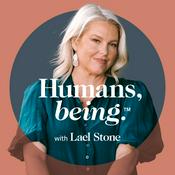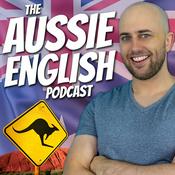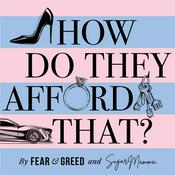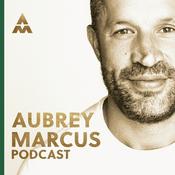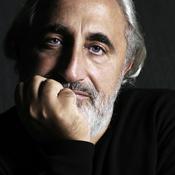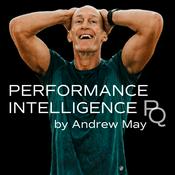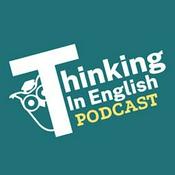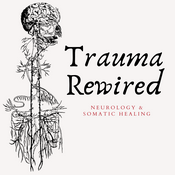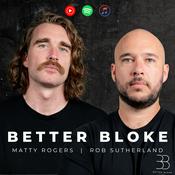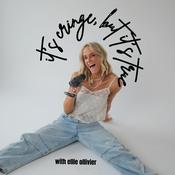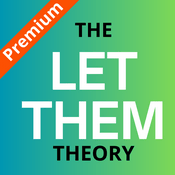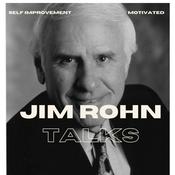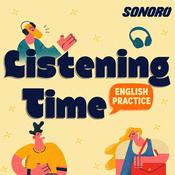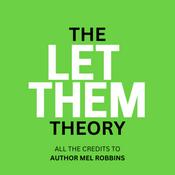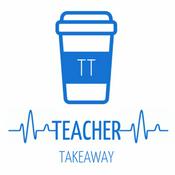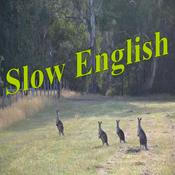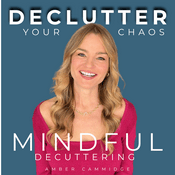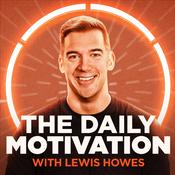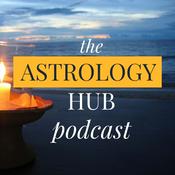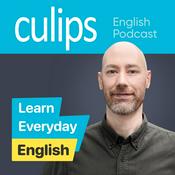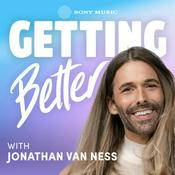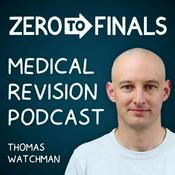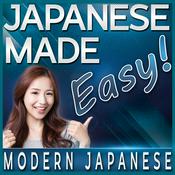180 episodes
- In this episode of Science of Reading: The Podcast, Timothy Shanahan, Ph.D., distinguished professor emeritus from the University of Illinois at Chicago, joins Susan Lambert to distinguish between reading comprehension, learning from a text, and the process of learning to read. He compares learning to read with athletic training, explaining that just as athletes need to vary their workout intensities to maximize their strength, students need to vary their text difficulty to maximize their comprehension, reading skills, and overall learning. Together, Timothy and Susan also discuss why reading comprehension is an ethical act and the power of simply rereading to increase comprehension.
Show notes:
Submit your questions on comprehension!
Access free, high-quality resources at our brand-new companion professional learning page
Connect with Timothy Shanahan, Ph.D.
Learn more about Timothy Shanahan, Ph.D.
Read the blog post "Don't Confuse Reading Comprehension and Learning to Read (and to Reread)"
Listen to Leveled reading, leveled lives, with Tim Shanahan, Ph.D.
Listen to Mitchell Brookins, Ph.D. on Beyond My Years
Listen to Season 2 of Amplify’s Beyond My Years podcast
Join our community Facebook group.
Connect with Susan Lambert
Quotes:
"We're trying to teach kids to read, and a text that is immediately comprehensible leaves you very little to learn." —Timothy Shanahan, Ph.D.
"Reading comprehension is not just a psychological or cognitive action—it's an ethical action." —Timothy Shanahan, Ph.D.
"Comprehension is not automatic. It isn't just, 'Oh, if you decode, you're going to comprehend.'" —Timothy Shanahan, Ph.D.
"A good reader has to start out with a determination. 'My job here is to understand it, not just to read it.'" —Timothy Shanahan, Ph.D.
Timestamps*:
00:00 Introduction: Learning to read vs. reading to learn with Timothy Shanahan, Ph.D.
06:00 Reading comprehension is not just a psychological or cognitive action, it's an ethical action.
09:00 Authors know their readers and so they put in affordances aimed at the reader.
15:00 Timothy's motivation for writing his blog post, "Don't Confuse Reading Comprehension and Learning to Read."
17:00 A text that is immediately comprehensible, leaves you very little to learn.
19:00 You can increase the learning for most people if you increase the difficulty.
24:00 An argument for students to read more rigorous texts.
28:00 A good reader has to start out with determination.
35:00 The different between learning and understanding is an issue of remembering.
39:00 Teachers need to teach kids to be strategic.
42:00 Timothy Shanahan's new wrinkle in thinking about comprehension, understanding, and learning.
44:00 In conclusion: Kids should be reading texts with varying levels of difficulty.
*Timestamps are approximate, rounded to nearest minute Special episode: Cultivating critical thinkers in your classroom, starring Mitchell Brookins, Ph.D.
04/02/2026 | 42 mins.We're excited to share a special episode from our friends at our sister podcast, Beyond My Years.
Host Ana Torres is joined by nationally recognized educational consultant and thought leader, Mitchell Brookins, Ph.D., to discuss what critical thinking is and how to help students develop it. He also explains why critical thinking is crucial for long-term academic success. Mitchell also gives gives educators four clear steps that they can implement to effectively nurture critical thinking skills in their classrooms. Ana is then joined by Beyond My Years Classroom Insider extraordinaire Eric Cross, who discusses how he encourages his students to hone their critical thinking skills in class.
Show notes:
Binge all of Beyond My Years podcast Season 2 now: https://amplify.com/bmy
Submit your questions on comprehension
Access free, high-quality resources at our brand-new companion professional learning page
Visit Mitchell Brookins, Ph.D,’s website
Connect with Mitchell Brookins, Ph.D., on LinkedIn
Connect with Ana Torres
Connect with Eric Cross
Join our community Facebook group.
Connect with Susan Lambert
Quotes:
"When you are a school administrator, you can't be confused as to what your identity is. People expect you to step in with voice, with passion, with vision, and direct the path." —Mitchell Brookins, Ph.D.
"That's how you know you're in a classroom with critical thinking: We're not rushing the conversation. We're enjoying it." —Mitchell Brookins, Ph.D.
"There's an art and science to teaching, and I think that they're two different things." —Eric Cross
"The importance of modeling can’t be overstated." — Ana Torres
Timestamps*:
00:00 Introduction
02:00 Ana Torres & Eric Cross preview Ana's conversation about critical thinking
04:00 Introducing Mitchell Brookins, Ph.D.
10:00 Why should critical thinking be top of mind for educators?
15:00 Where should teachers begin when trying to help students develop critical thinking skills?
20:00 Questioning that reveals classrooms in which teachers honor students' thinking
24:00 You can't get to a higher level if you don't have the knowledge.
28:00 For a lot of us, this work is more than just a profession it's a calling
30:00 Classroom Insider conversation with Eric Cross
37:00 Recap of Classroom Insider takeaways
39:00 Closing thoughts from Susan Lambert
*Timestamps are approximate, rounded to nearest minuteS10 E10: How language skills shape reading success, with Charles Hulme, D.Phil., and MaryKate DeSantis
28/01/2026 | 46 mins.Susan Lambert is joined by emeritus professor of psychology and education and the University of Oxford, Charles Hulme, D.Phil., and founder of Left Side Strong LLC, MaryKate DeSantis. They dive into the critial connection between oral language development and reading comprehension. They also explore exactly what oral language development is, how to screen children for deficits in oral language abilities, and the most effective strategies educators can use for intervention.
Show notes:
Submit your comprehension questions!
Access free resources on our companion professional learning page.
Connect with Charles on LinkedIn.
Learn more about Charles.
Connect with MaryKate on LinkedIn.
Learn more about Left Side Strong LLC.
Listen to our episode with Wesley Hoover, Ph.D.
Listen to our episode with Julie Van Dyke, Ph.D.
Listen to our episode with Tiffany Hogan, Ph.D.
Listen to Amplify’s Beyond My Years podcast.
Join our Facebook group.
Read Book Language: What It Is, How Children Can “Get It”.
Connect with Susan Lambert.
Quotes:
"Language comprehension is really what leads us to reading comprehension." —MaryKate DeSantis
"We talk about learning to read, but we also need to talk about reading to learn. A lot of what we learn in our lives is through reading, and reading is certainly a powerful drive of vocabulary and language development." —Charles Hulme, D.Phil.
"Language skills are unconstrained, meaning the sky's the limit. As long as you continue to engage in any sort of way, your language skills can continue to develop throughout your lifetime." —Susan Lambert
Timestamps*:
00:00 How language skills shape reading success
06:00 Defining reading comprehension
08:00 Reading is language. Without language, there would be no reading.
12:00 Importance of language skills for comprehension
16:00 Our main purpose in life is to communicate with others
21:00 Development of language skills
23:00 Moving the needle on literacy achievement
28:00 How students can help develop students' language capacity
31:00 Screening to assess oral language skills
35:00 Why early language instruction is effective and sustainable
39:00 Key takeaways
41:00 Focusing on language is worth the time
43:00 Closing thoughts
*Timestamps are approximate, rounded to nearest minuteS10 E9: From research to reality: Breaking down comprehension barriers, with Phil Capin, Ph.D.
14/01/2026 | 53 mins.In this episode of Science of Reading: The Podcast, Susan Lambert is joined by Phil Capin, Ph.D., assistant professor of education at the Harvard Graduate School of Education. They explore why recommended reading comprehension practices aren't widely implemented in schools, and what educators can do to change that. Together, they also discuss how knowledge building is foundational to reading comprehension, how writing is a powerful tool in supporting reading comprehension, and why we should structure reading instruction based on what happens before, during, and after reading.
Show notes:
Submit your questions on comprehension: http://www.amplify.com/sor-mailbag
Access free resources at our professional learning page: https://amplify.com/science-of-reading/professional-learning/
Connect with Phil Capin: https://www.linkedin.com/in/phil-capin-02105550
Read Hugh Catts' article, "Rethinking How to Promote Reading Comprehension": https://files.eric.ed.gov/fulltext/EJ1322088.pdf
Read Catherine Snow's article, "Reading for Understanding": https://www.rand.org/pubs/monograph_reports/MR1465.html
Learn more about Dolores Durkin's report, "What Classroom Observations Reveal about Reading Comprehension Instruction": https://eric.ed.gov/?id=ED162259
Read How People Learn: https://www.nationalacademies.org/read/9853/chapter/1
Listen to the podcast episode with Nancy Hennessy: https://podcasts.apple.com/us/podcast/s3-09-deconstructing-the-rope-vocabulary-with/id1483513974?i=1000520380191
Listen to Season 2 of Amplify's Beyond My Years podcast: http://at.amplify.com/bmy
Join our Facebook community: https://www.facebook.com/groups/scienceofreading
Quotes:
"We've underestimated the value of writing in supporting reading comprehension." —Phil Capin, Ph.D.
"Reading and writing rely on a lot of the same language processes, and writing supports the consolidation of knowledge." —Phil Capin, Ph.D.
"Students should engage with meaningful problems, and they should have a reason for learning." —Phil Capin, Ph.D.
Timestamps*:
00:00 Introduction
04:00 Phil Capin's career path
08:00 Reading comprehension is the byproduct of a constellation of competencies
11:00 The complexity of comprehension
16:00 Dolores Durkin's findings on comprehension testing vs. teaching
22:00 Students should engage with meaningful problems
24:00 Comprehension instruction is organized by before, during, and after reading.
27:00 The value of writing for comprehension
31:00 Where comprehension strategies could be helpful
39:00 How much time should teachers dedicate to strategy instruction?
41:00 The strongest predictor of whether you're going to understand the text is the knowledge you bring.
46:00 Every teacher is a reading teacher
48:00 Closing thoughts
*Timestamps are approximate, rounded to nearest minute- In this episode of Science of Reading: The Podcast, Susan Lambert is joined by educational consultant Nancy Chapel Eberhardt, who explains why focusing on syntax at the sentence level is just as important for comprehension as word-level decoding. Together, Nancy and Susan also discuss how syntax helps students process meaning while reading, why we should start early and teach syntax to students from the beginning, and a more functional approach to syntax.
Show notes:
Submit your questions on comprehension!
Connect with Nancy on LinkedIn.
Read Nancy’s article “Syntax: Somewhere Between the Words and Text.”
Learn more about Nancy’s book Syntax: Knowledge to Practice.
Learn more about the Syntax online course.
Listen to last week’s syntax-focused episode, with Julie Van Dyke, Ph.D.
Listen to the podcast the episode with Nancy Hennessy, M.Ed.
Read Maryellen MacDonald’s article “Book Language: What It Is, How Children Can ‘Get It’.”
Listen to Season 2 of Amplify’s Beyond My Years podcast.
Join our community Facebook group.
Connect with Susan Lambert.
Quotes:
"Syntax is somewhere between the individual words and the meaning of the text. It's the processing piece that's going on there." —Nancy Chapel Eberhardt
"Syntax isn't just for older kids anymore. Syntax is really something that we can start promoting, developing, encouraging, embracing from the beginning." —Nancy Chapel Eberhardt
"I actually think that as teachers embrace this idea of syntax, they're going to have a lot of fun with it. It's way more fun to talk about the meanings of words than to just decode them." —Nancy Chapel Eberhardt
Timestamps:
00:00 Introduction: Diving deeper into syntax, with Nancy Chapel Eberhardt
08:00 Comprehension is lifting the meaning out of text
11:00 Sentence-level abilities make as large a contribution as word reading for comprehension
14:00 The difference between syntax and grammar
20:00 Why syntactical knowledge is so helpful in the comprehension process
24:00 Prosody helps us with our fluency with reading
30:00 Syntax is somewhere between the individual words and the meaning of the text
33:00 We've gone through several generations of students who aren't being taught syntax
37:00 It's more fun to talk about the meanings of words
39:00 Start teaching syntax by thinking about the most essential build block
45:00 Connecting words are meaningless in the absence of other words
53:00 By spending more time instructing on syntax, we will reach more of our students.
56:00 Closing: Syntax is something we can start promoting, developing, encouraging, and embracing from the beginning.
*Timestamps are approximate, rounded to nearest minute
More Education podcasts
Trending Education podcasts
About Science of Reading: The Podcast
Science of Reading: The Podcast will deliver the latest insights from researchers and practitioners in early reading. Via a conversational approach, each episode explores a timely topic related to the science of reading.
Podcast websiteListen to Science of Reading: The Podcast, The Mel Robbins Podcast and many other podcasts from around the world with the radio.net app
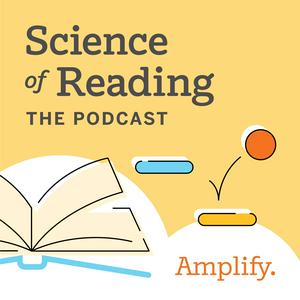
Get the free radio.net app
- Stations and podcasts to bookmark
- Stream via Wi-Fi or Bluetooth
- Supports Carplay & Android Auto
- Many other app features
Get the free radio.net app
- Stations and podcasts to bookmark
- Stream via Wi-Fi or Bluetooth
- Supports Carplay & Android Auto
- Many other app features


Science of Reading: The Podcast
Scan code,
download the app,
start listening.
download the app,
start listening.





